With both supplements offering a lot of physical benefits, which of the two is best for bulking up?
When most people think about what supplements offer the most muscle-building effects while working out, they generally keep the conversation centered around whey and protein powder supplements. And while these are certainly incredibly effective and useful options, they aren’t the only supplemental options out there.
Two other supplemental choices that offer impressive results are creatine and pre-workouts. Both options can be extremely useful in building up strength, muscle, and physical endurance through hypertrophy. Both supplements also fuel our bodies and muscles with energy, essentially allowing us to push harder for longer with less soreness after the fact.
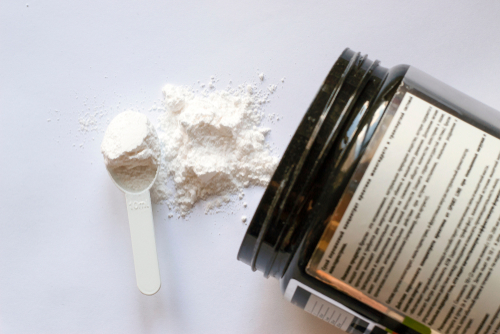
In an ideal world, those looking for the best results would consider doubling up and taking both supplements simultaneously, giving you the best of both worlds. This is what many professional bodybuilders and weightlifters do, giving them that much-needed boost to squeeze every bit of potential strength out of their bodies during a workout session.
If you’re just starting, can’t afford both, or simply just want to know which is the better option, you’ve come to the right place. In this overview, we’ll get into both options as well as what their respective strengths and weaknesses are so that you can decide which works best for you and what you’re looking for in a supplement.
Key Takeaways
- Creatine is a powerful amino acid that is essential to body-building protein. It is used primarily as a way to resynthesize ATP (adenosine triphosphate), the body’s form of energetic currency.
- Creatine supplements have been linked to an increase in overall physical strength as well as more lean muscle mass in general.
- Creatine also provides the muscles with additional fuel, allowing them to be pushed harder and for longer periods, resulting in larger and stronger muscles.
- Pre-workout supplements are a form of dietary supplement that is made up of multiple ingredients and specifically designed to increase your energy and assist in improving your overall athletic and physical performance.
- The main ingredients in pre-workouts are L-citrulline and L-arginine, both of which are used by the body to create nitric oxide, which improves blood flow by relaxing the blood vessels. This increased blood flow directly correlates to an increase in energy as well as improved athletic performance.
Related: The 10 Best Supplements for Muscle Growth
What Are Creatine Supplements?
One of the more well-studied supplements out there, creatine is a powerful amino acid that is essential to body-building protein. Creatine is a naturally occurring compound that is found in virtually all living creatures as a basic building block for life. It is used primarily as a way to resynthesize ATP (adenosine triphosphate), the body’s form of energetic currency. This ATP plays an important role in performing high-intensity exercises such as weight training or bodybuilding.
When working out, ATP (and therefore creatine) is required for proper muscle contractions and explosions. This means that, without a sufficient supply of creatine, your ATP levels will be too low for an effective workout performance, resulting in you getting tired faster while suffering more muscle soreness and slower recovery. Depending on our diets, most people only maintain between 60% and 80% of their naturally occurring creatine stores, meaning that even the most health-conscious diet is missing out on 20% of the daily required creatine.
Though creatine can be consumed via animal protein sources like fish or beef, the most effective way to get your total recommended amount, especially before a workout, is through creatine supplements. Creatine supplements are a relatively inexpensive method of ensuring you’re always at your peak during sports and training workouts as well as your health overall.
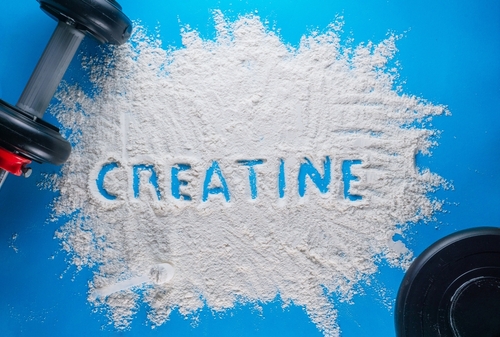
Benefits Of Creatine Supplements
Increased Physical Strength & Muscle Mass
As expected of a supplement that is used for building protein and providing energy to the muscles, creatine supplements have been linked to an increase in overall physical strength as well as more lean muscle mass in general.
Rather than a direct impact on the muscles themselves, creatine essentially provides the muscles with additional fuel, allowing them to be pushed harder and for longer periods. This has been shown to lead to larger and stronger muscles. Some studies have shown taking creatine alone can increase physical strength and power by up to 15% [1].
Improved Stamina & Endurance
Because creatine is used as fuel for your muscles, it offers a tremendous boost to one’s physical stamina and endurance. Especially when weight training, the body’s muscles burn a tremendous amount of energy through muscle contractions and extensions. By increasing the creatine in one’s body, they are essentially able to continue their physical performance for much longer than they would otherwise.
Enhanced Muscle Recovery
Similar to helping build muscle and improve physical stamina, creatine also is a great method of reducing fatigue in muscles while also improving their overall recovery. Muscle recovery is an essential part of muscle growth and increasing strength, as, after each exhaustive workout, the muscle fibers are damaged. During this time, it is vital that your muscles have a chance to recover, thus allowing them to grow back stronger and more capable. Creatine speeds this recovery process up, meaning the time spent recovering between workouts can be shortened dramatically [2].
Slows Muscle Loss
Just as creatine has been shown to improve physical strength and muscle growth, there is also evidence to suggest it is vital in slowing down and reducing the effects of muscle loss.
There have been several studies that show regular use of creatine, in combination with weightlifting, has benefits for older adults that are suffering from sarcopenia, a condition that results in the progressive loss of muscle size and strength [3].
In one study, elderly adults took creatine supplements alongside resistance training between 2 and 3 times a week for upwards of 52 weeks. When compared to those that only performed resistance training, those that took creatine gained 3lbs of lean muscle [4].
Improves Brain Function
Creatine supplements have also been shown to improve brain functions by between 5 and 15%. A study noted that taking between 5 and 20 grams of creatine every day for upwards of 6 weeks resulted in improved short-term memory recollection as well as an increase in both reasoning and overall intelligence. [5].
This is thought to be true due to an increased amount of oxygen and energy being delivered directly to the brain. There is also some speculation that creatine may help in treating neurodegenerative diseases (like Huntington’s or Parkinson’s) though the research is still pending.

Drawbacks Of Creatine Supplements
Potential Bloated Feeling
Arguably the biggest drawback one can expect from taking creatine is those that who take it are commonly cited as feeling bloated or having stomach cramps. This feeling is often experienced when first taking creatine during what is known as the “loading phase”. This consists of consuming between 20-25 grams of creatine every day over the span of a week. This process saturates the muscle stores so that you can experience the gains during your workout.
Other stomach-related issues can include water-weight gain, upset stomach, and diarrhea. One can reduce these effects by limiting the dosage to 10 grams or less per day.
Effects Aren’t Immediately Noticeable, If At All
The other factor worth considering is the fact that, while creatine is measurable in its effects on a person’s strength and muscle size, it doesn’t necessarily translate to “feeling” stronger. Many people largely feel the same during their workouts but can simply push for longer or lift heavier weights. Other supplements have a more pronounced feeling so that you “know” that it’s working.
Also, creatine monohydrate doesn’t work for about 30% of the population.
What Are Pre-Workout Supplements?
Pre-workout supplements are a form of dietary supplement that is made up of multiple ingredients and specifically designed to increase your energy and assist in improving your overall athletic and physical performance. As the name implies, these supplements are meant to be taken before a workout or any type of demanding physical activity.
Pre-workouts can vary based on the brand and the company and are typically offered as a powdered substance that is taken with water or milk. In terms of the ingredients, pre-workout supplements are similarly varied based on their formula. Generally, all supplements will include arginine, beta-alanine, L-citrulline, caffeine, and branched-chain amino acids (BCAAs). There are quite a few brands out there that even incorporate creatine as a compound ingredient.
Related: 5 Best Pre-Workouts With Creatine
Related: 13 Best Creatine Supplements on the Market
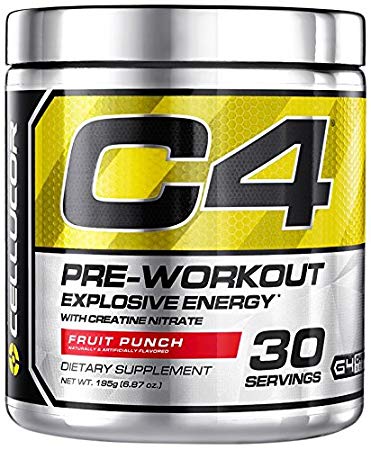
Benefits Of Pre-Workout Supplements
Improved Energy & Blood Flow
Two of the main ingredients in the majority of pre-workouts are L-citrulline and L-arginine, both of which are used by the body to create nitric oxide. Nitric oxide is a compound within the body that is used to improve blood flow by relaxing the blood vessels.
Currently, research has shown that improved blood flow directly correlates to an increase in energy as well as improved athletic performance [6].
Not only that, but pre-workouts also tend to include caffeine, which also is shown to increase energy and stimulate blood flow throughout the body.
Increased Focus
Caffeine doesn’t just help with improved energy. Studies have found that the stimulant also has many positive effects on a person’s ability to focus as well as on their memory and overall mental alertness [7].
Improved Endurance
Pre-workouts, in addition to caffeine and L-citrulline, often will include the amino acid, beta-alanine. This amino acid works to prevent acid buildup in muscle tissue, allowing for longer and more intense workout sessions [8].
Increased Muscle Growth
Many pre-workout supplements will also include BCAAs, which have been shown to increase muscle growth while decreasing muscle soreness. BCAAs, like creatine monohydrate, is a fairly popular supplements all on their own and are regularly taken for their note-worthy improvements to a person’s muscle mass and physical strength.
Drawbacks Of Pre-Workout Supplements
Unpleasant “Tingling Sensation”
Arguably the least severe of the drawback symptoms, beta-alanine, while useful for preventing acid buildup in the muscles, has been noted by many users to leave their arms feeling “tingling”. The sensation, while unpleasant, isn’t harmful in any way and has not been shown to inhibit overall exercise performance [9]. Still, the feeling is noted by many to be something altogether unpleasant and unenjoyable.
Digestive Issues
While pre-workout supplements and creatine monohydrate both are noted for having bloating and digestive issues as a side-effect, the causes are inherently different. Here, pre-workouts normally only have this as an issue when including artificial sweeteners and/or sugar alcohols.
Consuming large amounts of artificial sweeteners or sugar alcohols has been shown to trigger several digestive issues including bloating, gas, and diarrhea [10].
Increased Blood Pressure
As caffeine is included in pre-workout supplements, consuming too much can lead to several side effects, the most detrimental being increased blood pressure [11]. High blood pressure, if left unchecked, can lead to several potentially life-threatening health problems such as heart disease, a heart attack, or even a stroke. And since there are no initial warning signs or symptoms, you want to be particular with how much caffeine you are taking.
A single serving of pre-workout formula shouldn’t be too much of an issue per day. However, if you are consuming caffeine from other products (coffee, soda, etc.) you may potentially be taking in much more than you initially thought, putting yourself at risk.
Potentially Unsafe Brands
Lastly, while most pre-workouts you’ll come across are safe and verified, that doesn’t mean all of them are. In particular pre-workout supplements, are recognized primarily as “foods” instead of as “drugs”. This distinction means that there is a slight chance that a compromised or unsafe brand of the supplement has made it onto shelves.
Not only are these potentially dangerous, but they also could potentially include banned ingredients that could prevent you from competing in any sport or athletic event.

Which Is Better – Creatine Or Pre-Workout Supplements?
Both creatine and pre-workout supplements have a lot of things going for them as well as their respective drawbacks to consider. One of the big differentiating factors, however, is how either supplement operates on the body. Where creatine works by fueling your muscle stores, giving them more energy to pump longer and at higher weights, pre-workouts operate mainly by fueling your body with caffeine while utilizing other ingredients to increase muscle growth and physical endurance.
Ultimately, this breaks down to a conversation on which is more useful to you: creatine or caffeine? Whereas the caffeine will increase your overall energy and mental focus, that won’t necessarily always translate to a bigger pump. On the other hand, creatine, while allowing you to supplement your ATP stores and get those extra sets of reps out, won’t really “feel” like anything. It’s more like a standard workout where you’re just doing a bit better.
All in all, when it comes to which of the two is better, while creatine has a lot of things going for it, the benefits of a quality pre-workout supplement are just too much to pass on, especially for someone just getting started. This is because, for many beginners, the main thing they need is motivation. A solid quality pre-workout supplement can give that starting person the energy needed to push that one extra rep, motivating them much more effectively than a slight increase over time with creatine.
Can You Take Both Supplements Together?
One of the interesting facts is that, even though this is a comparison between the two, that doesn’t inherently mean either should be taken exclusively against the other. When it comes to pre-workouts, many of them already include a certain amount of creatine in them.
The truth is that most people not only can take both supplements simultaneously, but it’s also to their advantage. This is because their effects are noncompeting while also working synergistically with one another. As an example, where a pre-workout supplement could help you push yourself to get those last two reps in out of 10 when working with a creatine supplement, those 10 reps could be 14 or 15.
Ultimately, while a pre-workout supplement is ideal for its useful burst of energy when taken alongside creatine, the results are made exponentially better.
Conclusion
When it comes down to it, both creatine and a quality pre-workout supplement are important inclusions for any person looking to see serious growth in their athletic performance. Either supplement can help push you beyond your current state while also allowing you to stay at that level for longer.
If you’re just starting and need that extra motivation and enthusiasm, investing in a good pre-workout supplement is your best bet. On the other hand, more experienced weight lifters may want to check out creatine as a way to push past any plateaus they may be experiencing.
Ultimately, you must determine what you need and that (whichever you decide on) you pick a quality supplement that does everything it claims.
FAQs
What’s The Optimal Dosage Amounts For Either Supplement?
Because creatine and most pre-workout supplements are very different from one another, the amount required for either option can vary drastically.
For creatine’s effects to take place, you need to undergo something called a “loading phase”. This is where you must consume large amounts of creatine over the course of between 5 and 7 days to “fill up” your creatine stores. In these instances, you are expected to start at around 25 grams during this loading phase before cutting down to around 3-5 grams per day.
When it comes to pre-workout supplements, you simply need to follow the recommended dosage requirements listed on the container roughly 30 minutes to an hour before your workout to immediately start feeling the effects. Because you aren’t “loading” anything with a pre-workout supplement, you don’t need to consume large amounts in the beginning or maintain a certain amount every day. You can take them whenever you want so long as it’s no more than an hour before a workout.
Do Either Have Any Side-Effects?
When it comes to side effects, neither is wholly untouched. Generally speaking, creatine has much fewer and less severe side effects due to its composition being all around simpler. Particularly only during the “loading phase” of taking in creatine, you may feel slightly bloated or have some digestive issues. This is temporary and will go away once the week is over and you are back to a more regulated regimen.
Pre-workout supplements are a challenge due to them having many different ingredients, all of which factor into any potential side effects. The most common you’ll notice is also bloating though this is likely due to any artificial sugars or sugar alcohols, which can be avoided based on what brand you’re interested in.
How Much Do They Cost?
The good news is that, while sports supplements can become expensive as you add more to your list of items, both creatine, and pre-workout supplements can be very inexpensive.
Creatine is almost always going to be the least expensive of the two, coming to around $13 a month. Pre-workout supplements, on the other hand, can potentially be more expensive based on the various ingredients listed. Generally, you can expect to pay between $30 and $40 per month.
References
- Kreider RB. Effects of creatine supplementation on performance and training adaptations. Mol Cell Biochem. 2003 Feb;244(1-2):89-94. PMID: 12701815.
- Wang CC, Fang CC, Lee YH, Yang MT, Chan KH. Effects of 4-Week Creatine Supplementation Combined with Complex Training on Muscle Damage and Sport Performance. Nutrients. 2018 Nov 2;10(11):1640. doi: 10.3390/nu10111640. PMID: 30400221; PMCID: PMC6265971.
- Stares A, Bains M. The Additive Effects of Creatine Supplementation and Exercise Training in an Aging Population: A Systematic Review of Randomized Controlled Trials. J Geriatr Phys Ther. 2020 Apr/Jun;43(2):99-112. doi: 10.1519/JPT.0000000000000222. PMID: 30762623.
- Chilibeck PD, Kaviani M, Candow DG, Zello GA. Effect of creatine supplementation during resistance training on lean tissue mass and muscular strength in older adults: a meta-analysis. Open Access J Sports Med. 2017 Nov 2;8:213-226. doi: 10.2147/OAJSM.S123529. PMID: 29138605; PMCID: PMC5679696.
- Avgerinos KI, Spyrou N, Bougioukas KI, Kapogiannis D. Effects of creatine supplementation on cognitive function of healthy individuals: A systematic review of randomized controlled trials. Exp Gerontol. 2018 Jul 15;108:166-173. doi: 10.1016/j.exger.2018.04.013. Epub 2018 Apr 25. PMID: 29704637; PMCID: PMC6093191.
- Oral O. Nitric oxide and its role in exercise physiology. J Sports Med Phys Fitness. 2021 Sep;61(9):1208-1211. doi: 10.23736/S0022-4707.21.11640-8. Epub 2021 Jan 20. PMID: 33472351.
- Institute of Medicine (US) Committee on Military Nutrition Research; Marriott BM, editor. Food Components to Enhance Performance: An Evaluation of Potential Performance-Enhancing Food Components for Operational Rations. Washington (DC): National Academies Press (US); 1994. 20, Effects of Caffeine on Cognitive Performance, Mood, and Alertness in Sleep-Deprived Humans. Available from: https://www.ncbi.nlm.nih.gov/books/NBK209050/
- Saunders B, Elliott-Sale K, Artioli GG, Swinton PA, Dolan E, Roschel H, Sale C, Gualano B. β-alanine supplementation to improve exercise capacity and performance: a systematic review and meta-analysis. Br J Sports Med. 2017 Apr;51(8):658-669. doi: 10.1136/bjsports-2016-096396. Epub 2016 Oct 18. PMID: 27797728.
- Trexler, E.T., Smith-Ryan, A.E., Stout, J.R. et al. International society of sports nutrition position stand: Beta-Alanine. J Int Soc Sports Nutr 12, 30 (2015). https://doi.org/10.1186/s12970-015-0090-y
- Mäkinen KK. Gastrointestinal Disturbances Associated with the Consumption of Sugar Alcohols with Special Consideration of Xylitol: Scientific Review and Instructions for Dentists and Other Health-Care Professionals. Int J Dent. 2016;2016:5967907. doi: 10.1155/2016/5967907. Epub 2016 Oct 20. PMID: 27840639; PMCID: PMC5093271.
- Temple JL, Bernard C, Lipshultz SE, Czachor JD, Westphal JA, Mestre MA. The Safety of Ingested Caffeine: A Comprehensive Review. Front Psychiatry. 2017 May 26;8:80. doi: 10.3389/fpsyt.2017.00080. PMID: 28603504; PMCID: PMC5445139.

Ryan is a former college wrestler and lifelong fitness fanatic with over 25 years in the industry. He’s run half marathons, tackled mud runs, placed in body transformation contests, and coached everything from wrestling to girls’ soccer.
Along the way, he’s tested hundreds of supplements and built a deep well of supplement knowledge. His work has appeared in Muscle & Strength, Testosterone Junkie, The Sport Review, and more. Today, he’s the editor-in-chief of this site, still training hard and helping others reach their goals. Connect with him on LinkedIn below.
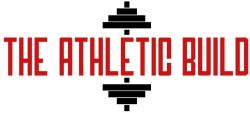


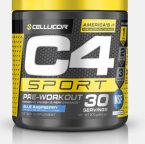
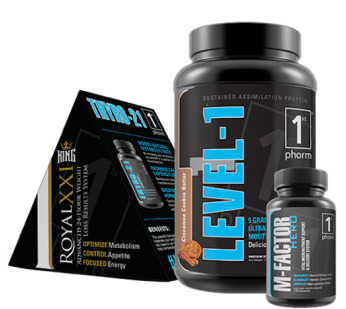
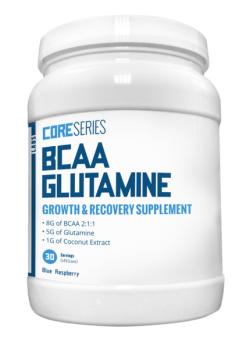


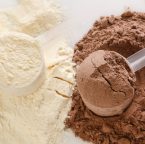
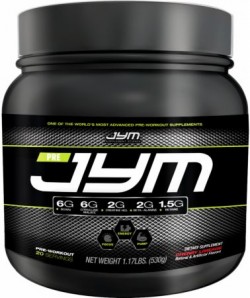
Be the first to comment